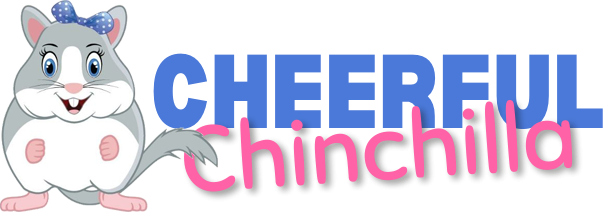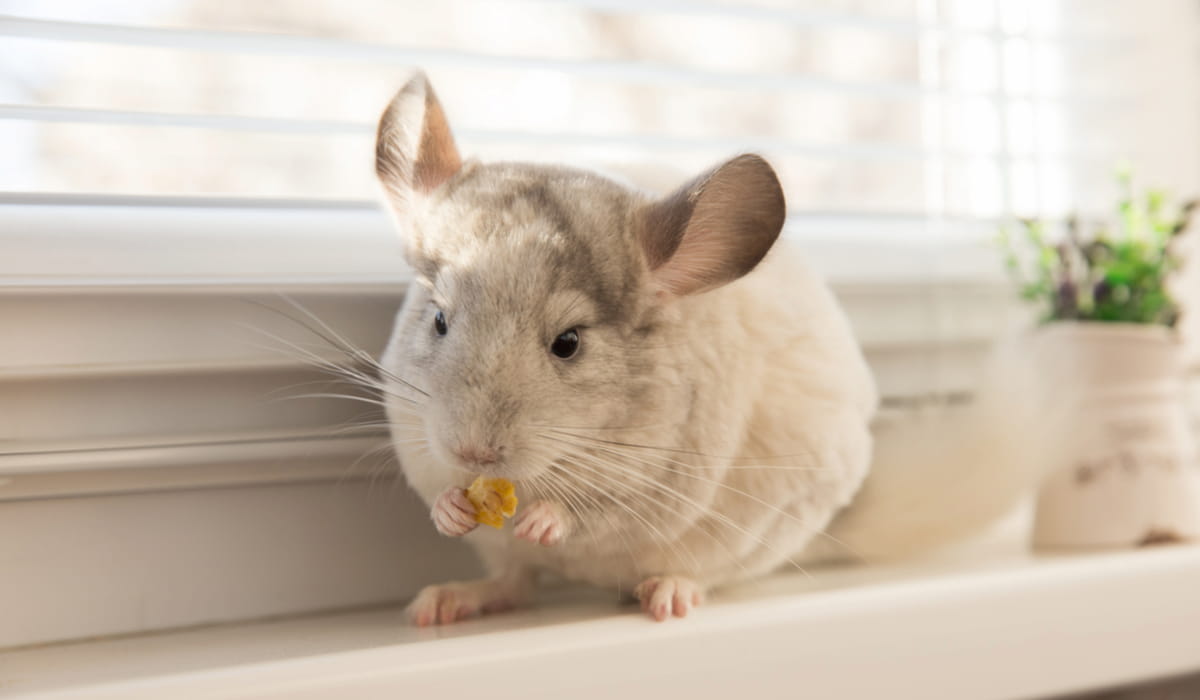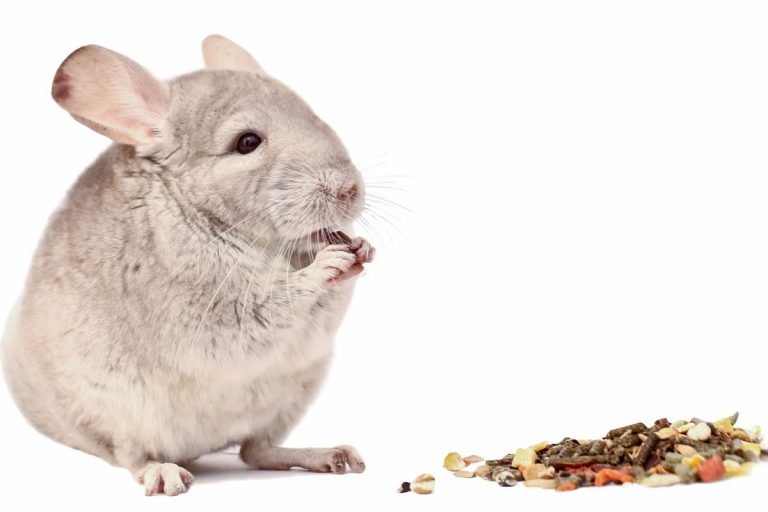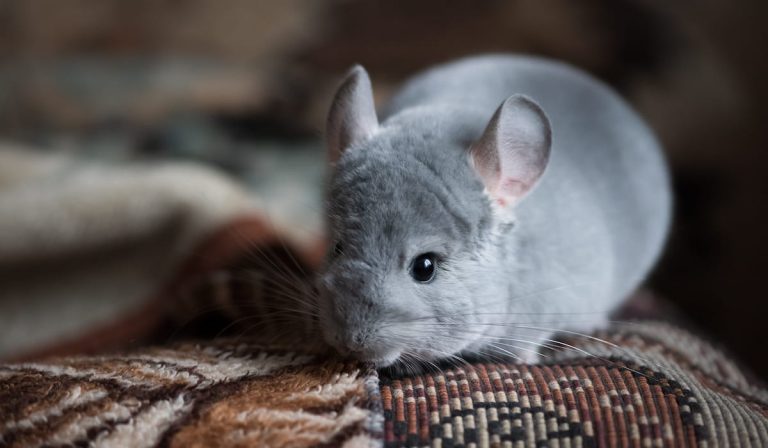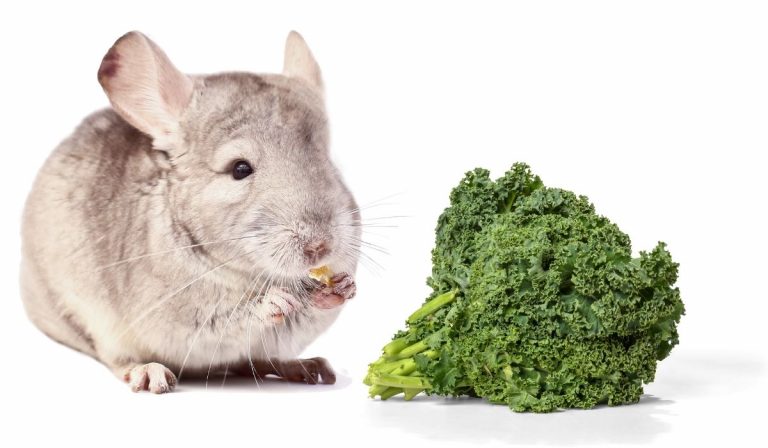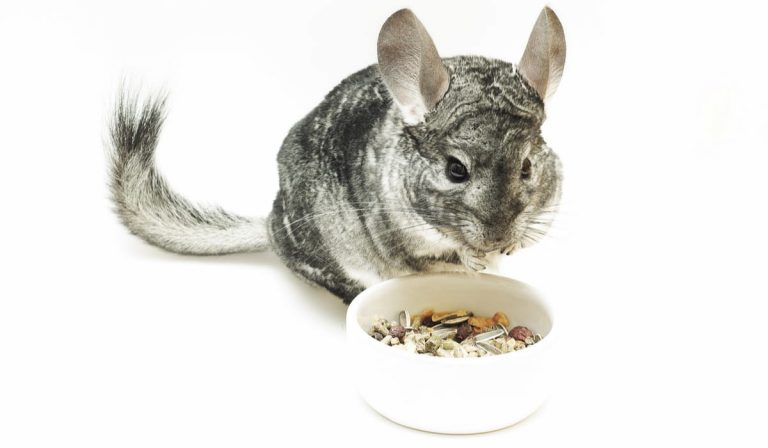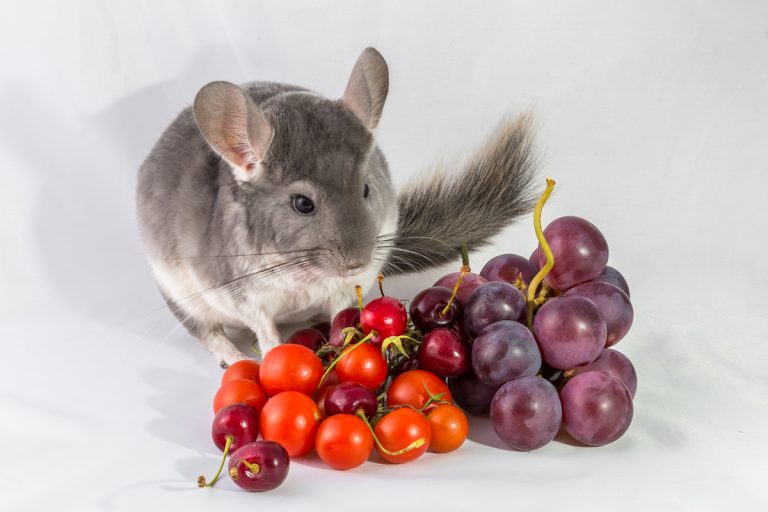8 Common Foods to Investigate Before Feeding to Your Chinchilla
Chinchilla pellets, hay, and clean water should be the main things consumed by your chinchilla. Their sensitive digestive systems require the high fiber contents of these primary foods to function properly and keep your pet healthy and happy.
But what about other common foods, such as fruits and cereals?
Chinchillas can eat some fruits and grains, but only in limited quantities.
This implies that we must be informed and cautious about what we choose to put in our chinchilla’s food dish.
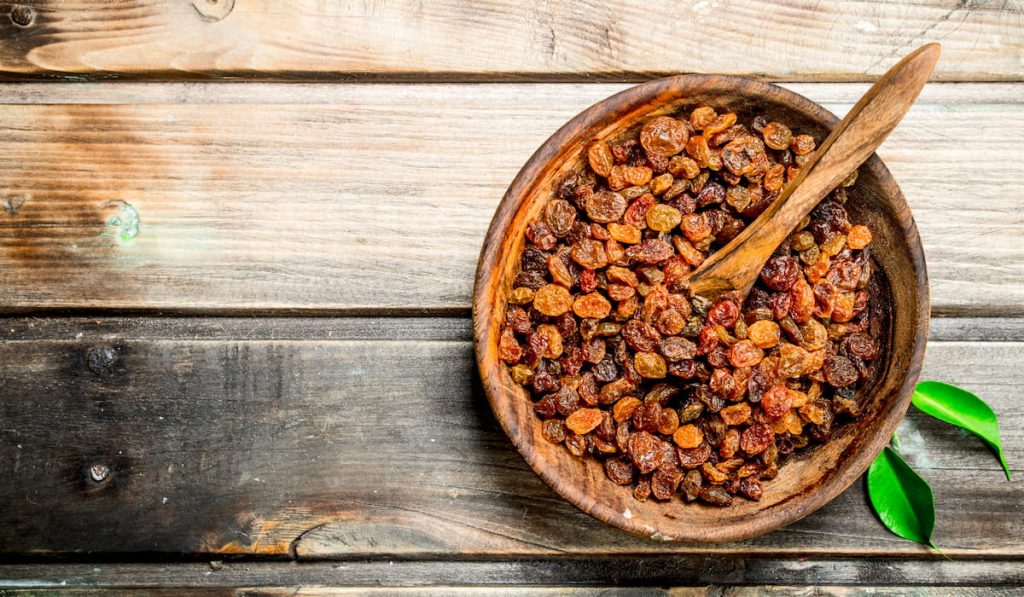
Before we go any further, you should understand that giving your chinchilla foods outside of their main diet ought to be a rare and infrequent event.
Other foods should be regarded as a treat or dessert rather than as staple items. Not to mention the fact that you must be selective about the fruits and other treats you provide.
In this article, we will discuss eight common foods pet owners may want to feed their pets. Not all are fruits, but as most are, we should outline some general guidelines on feeding your chinchilla fruit first.
How to Offer Fruit to a Chinchilla
Chinchillas can consume a variety of fruits, including apples, strawberries, and pears, among several others. However, fruit should be offered irregularly, and whether in dried form depends on the fruit.
When offering fruit to a chinchilla, 1 cm is the ideal size to offer.
Chinchillas can have a few fruits in dried form, but only in very tiny quantities because of their high sugar and fat content. Examples of dried fruits, apricots and raisins, will be discussed later in this article.
Some pet owners believe that three treats a week is the absolute maximum. Other people elect to give treat fruits to chinchillas once a week or twice at the most.
While still other owners use fruit as a reward only when returning their pet to their cage.
When giving your chinchilla any fruit, you must always ensure that you are following this advice: Chinchillas should only occasionally be provided with a little piece of fruit.
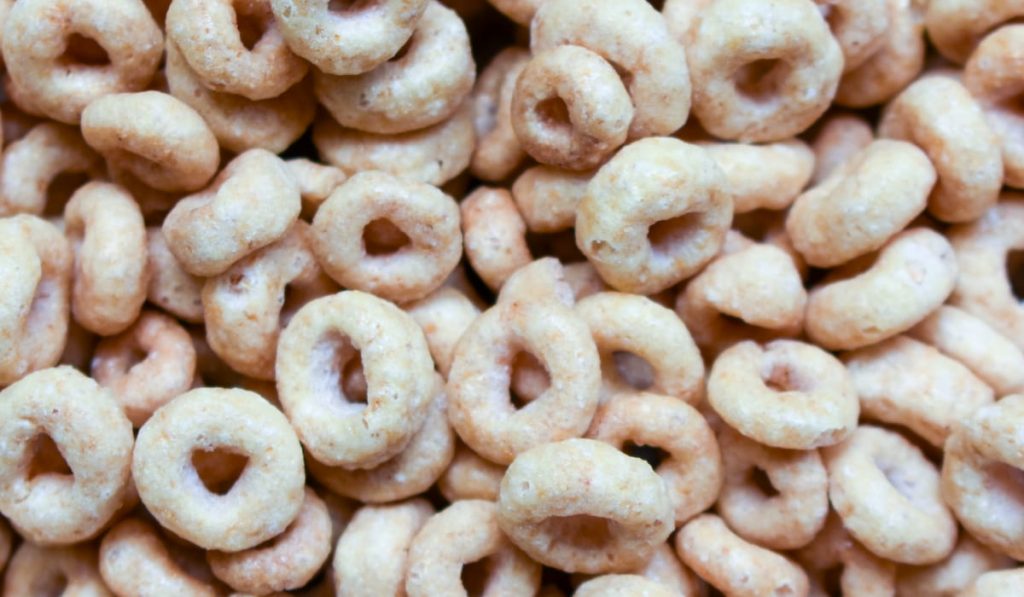
8 Common Foods: To Feed or Not To Feed?
Let’s go through eight common foods that chinchilla owners often inquire about one by one to guarantee that we all have healthy chinchillas that don’t have stomach problems.
1. Pears
Chinchillas really like pears, and it has been shown that they are beneficial to their health. If you want to feed your chinchillas pears, make sure you cut them into bite-sized chunks about the size of a raisin.
2. Red Apples
A chinchilla’s stomach will not be upset by apples if they are fed in modest amounts (little bits), and on an irregular basis.
Apples will not make your chinchilla sick unless it eats an excessive amount of them or consumes them on a regular basis.
Despite the fact that chinchillas like the sweet flavor of apples, owing to the high amounts of calcium and acid in apples, chinchillas should only be given apples in modest 1-1.5 cm serving sizes.
You should only provide apple pieces to your chinchillas as treats, and perhaps when they are very hungry, else they may not eat their main meal. Consuming apple without enough fiber and water could cause stomach upset.
3. Green Apples
Chinchillas are able to consume green apples just as well as red apples. However, you should only give your chinchilla green apples twice a week at the most in very tiny portions.
In contrast, applesauce should not be given to a chinchilla. The sugar content in apple sauce is much higher than that of apples themselves.
The high sugar content can induce complications like stomach upset to your chinchilla, making them sick, or possibly develop digestive problems.
4. Apricots
Chinchillas are likely to love the sweetness of apricots. If you want to give your chinchilla apricots, make sure they are dried apricots rather than fresh.
You should also ensure that you only give your chinchilla a few pieces of dried apricots on an infrequent basis. At the most, three times each week.
5. Raisins
Despite the fact that chinchillas are capable of consuming raisins, raisins must only be offered in limited amounts. If you give your chinchilla raisins, offer, at most, two 1 cm-1.5 cm raisins at a time.
Don’t give your chinchilla raisins on a daily basis. Just pellets and hay should be eaten on a regular basis.
Many owners question giving their chinchilla raisins at all because of their toxicity to dogs and cats. While some experienced keepers treat their chinchillas with raisins occasionally, the decision is up to each owner.
Either way, raisins should not be fed regularly, nor in amounts over 2 raisins at a time.
6. Almonds
Almonds and other nuts contain a significant quantity of fat and are thus not recommended for chinchillas.
If you do offer them, they should only be given on rare occasions and in tiny amounts, just like any other food other than pellets and hay.
7. Cheerios
Cheerios are a popular morning cereal that chinchillas can have in small amounts as a treat.
Despite the fact that chinchillas will appreciate the fun-shaped food, Cheerios have a higher amount of phosphorus than what most chinchillas need.
In order to prevent creating a calcium-phosphorus imbalance in your chinchilla’s diet, Cheerios must only be offered infrequently and in small amounts.
Upsetting this balance can lead to physical issues such as brittle bones and neurological conditions. Both of these are worries any pet parent would want to avoid.
Cheerios are, however, known as an excellent source of high-quality fiber as well as heart-healthy fats and calcium. Aside from that, they are an excellent source of vitamins, but the higher amount of phosphorus makes them not suitable as an everyday food for a chinchilla.
8. Cranberries
Chinchillas will eat cranberries, but they can be very dangerous for them. Cranberries contain an excessive amount of sugar, fat, and phosphorous—all of which will cause digestive upset and possibly other nutrient imbalances.
It is likely that feeding a chinchilla cranberries will result in abdominal pain as well as other illnesses.
Avoiding cranberries altogether may be the best policy to avoid making your chinchilla feel unwell.
Conclusion
Chinchillas may be one of the most wonderful pets you could ever have if you give them the right care. Always investigate any foods you offer them besides hay and pellets first. Many foods have the potential to be detrimental to your chinchilla’s sensitive digestive system, and perhaps to their overall health.
Remember to contact your veterinarian if you ever have any concerns about whether something is safe or dangerous for your chinchilla. Chinchillas should be fed fruits sparingly and only in very small amounts.
Resources
- https://planetchinchilla.com/can-chinchillas-eat-fruit/
- https://thepetsupplyguy.com/can-chinchillas-eat-cheerios/
- https://neeness.com/what-can-chinchillas-eat/
- https://infolific.com/pets/chinchillas/are-raisins-safe-for-chinchillas/
- http://www.onlinechinchillacare.com/can-chinchillas-eat-dried-apricots/
- https://www.exoticdirect.co.uk/news/what-can-chinchillas-eat-best-diet-for-pet-chinchillas
